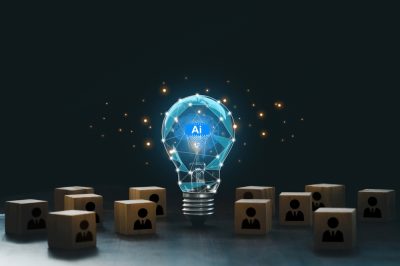Highlights:
- The introduction of Operator indicates that OpenAI is keen to capitalize on the larger movement toward “agentic AI,” which describes AI programs that can finish multi-step tasks with no human oversight.
- According to reports, OpenAI has been developing several AI agents in an attempt to catch up, putting it in the unique situation of being late to market in terms of agentic AI.
OpenAI is planning to launch “Operator,” a new AI agent that can execute browser-oriented operations on behalf of users. The company eyes to go beyond simply generating answers and texts with this new launch.
According to sources, Operator is anticipated to launch as a research peek in January and will be accessible through its developer application programming interface. It will be able to perform tasks like building software and scheduling flights based on user directions.
The introduction of Operator indicates that OpenAI is keen to capitalize on the larger movement toward “agentic AI,” which describes AI programs that can finish multi-step tasks with no human oversight. One of the most popular developments in the tech sector right now is AI agents, which are self-governing systems that function more like personal assistants than conventional chatbots.
Andy Thurai, Vice President and Principal Analyst of Constellation Research Inc., said that AI agents are different from conventional chatbots as they can tackle probabilistic decision-making that enables to adapt and learn from several real-time outcomes.
“This dynamic ability allows agents to go beyond simple automation and start acting as collaborators in workflows,” added Thurai.
In following this pattern, OpenAI is by no means alone. Anthropic PBC, a competitor in the AI space, stated earlier this month that its AI agents will be able to automate tasks like creating websites and editing spreadsheets. In the meantime, Google LLC has revealed a number of developer tools that let businesses use its Gemini large language models to develop their own AI agents that are tailored for particular activities.
Other businesses have also taken the lead in agentic AI. Salesforce Inc. has shown a number of AI agents, such as a customer support agent that can handle customer issues without the need for human intervention and a sales representative who can interact with potential customers on salespeople’s behalf. Cisco Systems Inc. has launched customer service agents for Webex, ServiceNow Inc. has introduced its family of Now Assist AI agents, and the startup Kolena Inc. recently unveiled an AI agent that focuses on data cleansing to improve the quality and training of other AI models.
According to reports, OpenAI has been developing several AI agents to catch up, putting it in the unique situation of being late to market in terms of agentic AI. But the only one for which information is available is Operator, which completes duties on a web browser.
OpenAI CEO Sam Altman talked about the company’s transition to AI agents. He stated that while the company will keep creating larger and more advanced models, agents will be its next big achievement.
Given that reports elsewhere indicate that OpenAI and its competitors are finding it difficult to recoup their expensive investments in increasingly sophisticated AI models, the company is likely feeling forced to attempt a different strategy.
The research was published on the same day that OpenAI published a draft of its AI policy paper, which includes a number of recommendations for the AI strategy of the US government. To better compete with China, OpenAI has suggested, among other things, that the federal government develop “AI-focused economic zones” and form a coalition of partners.
To power AI, the company’s ideas also called for more energy producing facilities. It makes the case that building nuclear power and renewable energy sources like wind and solar farms should be the United States’ top priorities.





























































